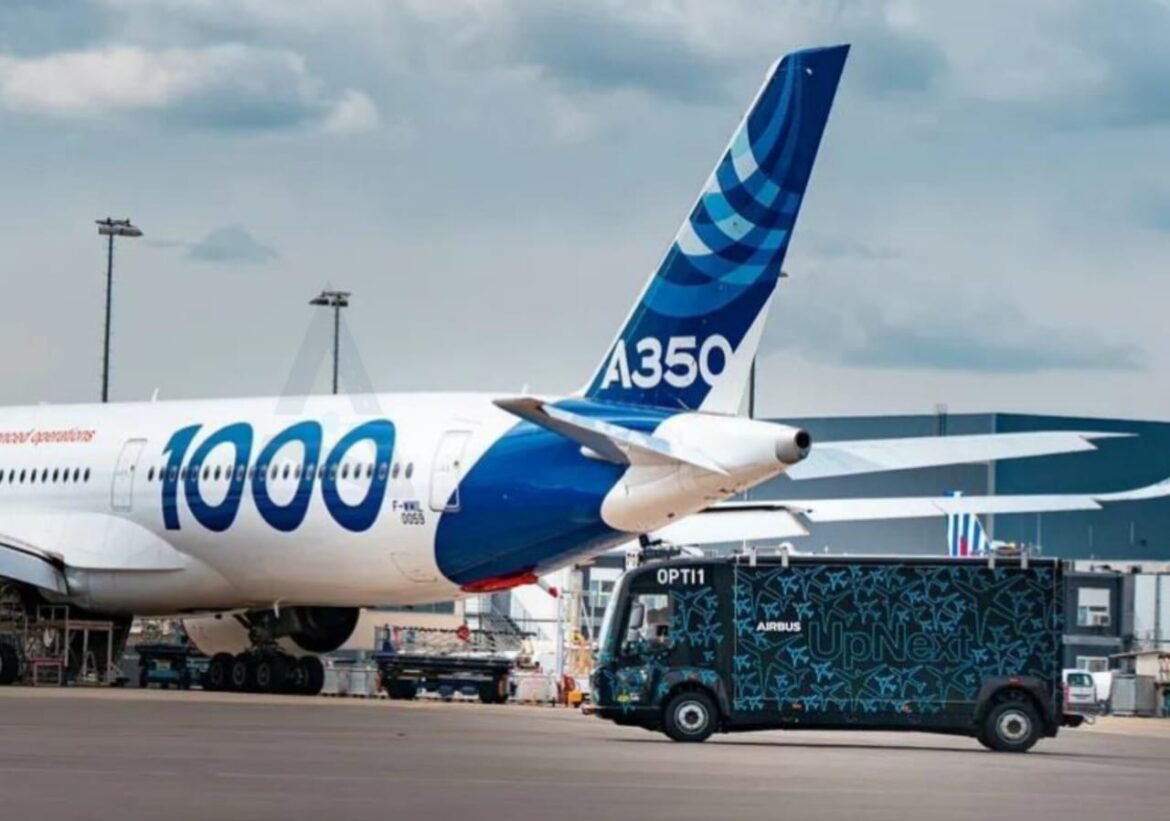In a pioneering move towards the future of aviation, Airbus has embarked on an unconventional yet groundbreaking experiment, utilizing a truck as a surrogate for its A350 aircraft to explore autonomous taxiing technology. This innovative approach marks a significant step forward in the quest for autonomous aircraft operations, with the potential to revolutionize ground handling procedures and enhance efficiency across the aviation industry.
The initiative, spearheaded by Airbus, aims to assess the feasibility and viability of autonomous taxiing systems for commercial aircraft, with the A350 serving as the testbed for this cutting-edge technology. Rather than retrofitting the aircraft itself with autonomous capabilities, Airbus has opted for a pragmatic approach by utilizing a specially modified truck to simulate the behavior of the A350 during taxiing operations.
The surrogate truck, equipped with sensors, cameras, and other advanced technology, is designed to mimic the movements and dynamics of the A350 aircraft on the ground. By replicating real-world scenarios and environmental conditions, Airbus can gather valuable data and insights into the performance and reliability of autonomous taxiing systems in a controlled testing environment.
The decision to use a truck as a surrogate for the A350 reflects Airbus’s commitment to innovation and safety in the development of autonomous technologies. By conducting trials with a surrogate vehicle, Airbus can mitigate potential risks and ensure the integrity of its testing procedures before implementing autonomous taxiing systems directly on commercial aircraft.
The implications of autonomous taxiing technology extend far beyond the realm of convenience and efficiency. By reducing the reliance on traditional tow vehicles and manual intervention during ground operations, autonomous taxiing systems have the potential to streamline workflows, minimize delays, and enhance overall safety at airports around the world.
Furthermore, the adoption of autonomous taxiing technology aligns with broader industry efforts to reduce carbon emissions and environmental impact associated with aircraft ground operations. By optimizing taxiing routes, reducing idle times, and optimizing fuel consumption, autonomous taxiing systems contribute to the sustainability goals of airlines and airport operators alike.
The surrogate truck trials represent a crucial milestone in Airbus’s journey towards autonomous aircraft operations. As the aviation industry embraces digitalization and automation, Airbus remains at the forefront of innovation, leveraging technology to drive progress and shape the future of flight.
Looking ahead, Airbus will continue to refine and validate its autonomous taxiing technology through rigorous testing and validation processes. Collaborating with regulatory authorities, industry partners, and stakeholders, Airbus aims to pave the way for the widespread adoption of autonomous ground handling systems, ushering in a new era of efficiency, safety, and sustainability in aviation.
In conclusion, Airbus’s use of a surrogate truck to explore autonomous taxiing technology for the A350 aircraft represents a bold leap forward in the quest for autonomous aircraft operations. By harnessing the power of innovation and collaboration, Airbus is poised to revolutionize ground handling procedures and pave the way for a smarter, more efficient future in aviation.

